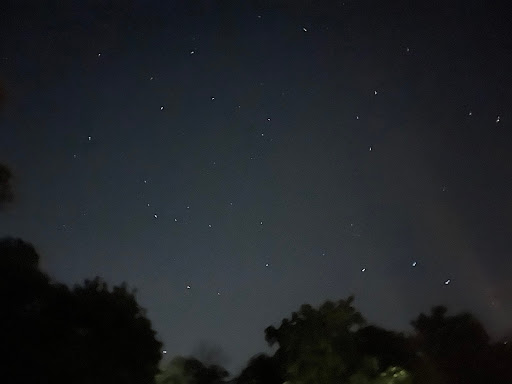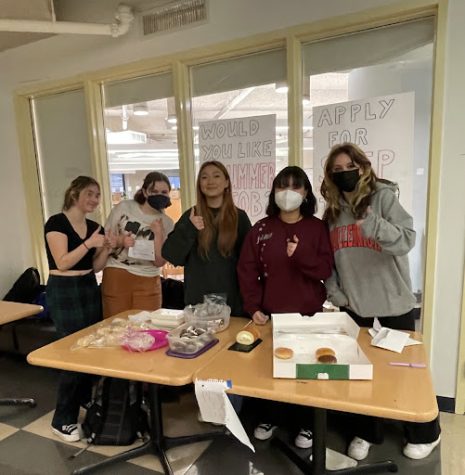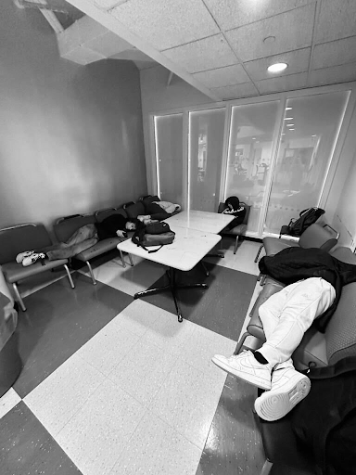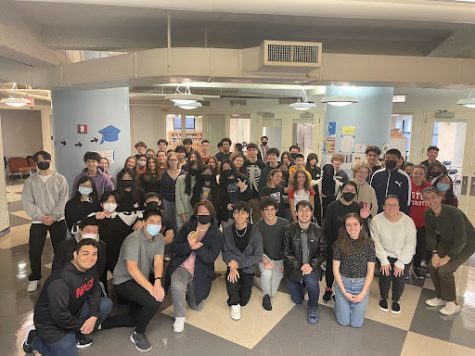A Junior Review of the classes
As rising juniors, we were given a list of the AP courses offered in 2022-2023 (For Juniors). The list we were given included: Biology, Chemistry, World History, U.S. History, Studio Art, English Language and Spanish Language. For these difficult courses make sure you actually use the resources of office hours; committing to an AP means time management is the one skill you should learn to juggle in September if you’re applying for courses: DONT BE HARD ON YOURSELF! It’s difficult with all your other 6 subjects but you will bring your work up with all the resources you need. AP teachers do not hand out free grades, they see growth, and work. Make sure you want to be there and put effort in. Here’s a little inside of our personal and interviewed reviews as juniors already 2 months into school.
AP Chemistry:
AP Chemistry is taught by Dr. Craddock, who is also the tenth grade chemistry teacher. This class is basically a deeper dive into the topics you’ve learned in 10th grade chemistry. If you plan on applying to AP chemistry, be sure to actually like chemistry first because if you do not like it, it will seem unbearable and worthless. Moreover, please pay attention to your tenth grade chemistry class because it will definitely help you by allowing you to understand certain concepts easily. In AP Chemistry, you will also be signing up for zero period. This means you need to be at school earlier than usual. During zero period, we usually conduct labs or do practice for a topic we recently learned.
As for homework, it hasn’t been outrageous; it is manageable as long as you manage your work properly. However, you MOST DEFINITELY need to be able to self study as some concepts may just be too hard to grasp.
AP Biology:
AP Biology is taught by Ms. Taylor. If you plan on applying to AP Biology, be sure to brush up on your biology content as everything is mostly content-based. Like AP Chemistry, AP Biology is very similar to 9th grade biology. Instead of learning the broad details of Biology, you will be diving into the more specific details of Biology. Tao, a junior in AP biology, says, “AP bio is very content based, there are a lot of memory based [details].” Tao also says that a great way to understand biology is to draw connections to real life examples and to keep a 1:1 study ratio. His 1:1 study ratio is if you have a 1 hour class, you need to study for 1 hour afterwards. Although AP biology– like any other AP class– is challenging, it is manageable with Tao’s 1:1 study ratio and reviewing the worksheets given in class.
AP U.S. History:
AP U.S History is taught by Ms. Raykhtsaum who also teaches regular U.S. History. This course covers content from the mid 1400s, when the colonies were first formed, up to present day history. APUSH goes over a few topics covered in 10th grade Global History, but just in more detail. If you enjoy learning about history, then this course is perfect for you. In this course, you will not only have to learn the content but also learn how to write several short response and essay questions in preparation for the AP exams. Short response and essay questions are expected to be written in short amounts of time which can be stressful. Our tests are usually full period and consist of multiple choice questions and short answer questions. If you struggle with essay writing and time management on exams, then this course may not be the class for you. However, if you truly love history and do not feel discouraged, you can improve your writing skills over time.
As for the workload, usually we are assigned one chapter of the textbook a week to read which is about 30 pages. The pace of this class is pretty fast and it is important to pace yourself with the reading. You are expected to know the information from the textbook for exams. Some content from the textbook may not be covered in class so it is important to always be caught up on your reading.
AP World History:
AP World History is taught by Ms. Kappler. Like AP U.S. history, it is a heavy workload! This course’s content starts from 200 CE to present day history. Students say that it takes time to pick up at the start of the school year, but it is very beneficial. It brings a new perspective of all your 10th grade knowledge of World History; it goes in depth and understanding of textbook readings. You learn critical thinking skills with essay writing, which you can apply to other classes. Ms. Kappler prepares you to succeed; she gives you resources and opportunities to learn from your previous essays or quizzes. All tests are based on your homeworks, so you need to make sure you put effort into studying and quickly adapt at the start of the school year to studying strategies. World History is also difficult because you juggle two history classes and be prepared to have to succeed in both!
AP English language:
AP English Language is taught by Ms. Stasavage. This class is the class for all of those who find significance in the components of writing essays. In class, you will expect to annotate letters, essays, and other non-fiction texts. After annotating, you will discuss the strategies the writer uses with your tablemates. Similar to classwork, you will annotate the texts for homework. Erin, a junior in AP English Language, says “a lot of people don’t see any fun in writing essays, but I like learning the different strategies it takes in order to get your reader to trust you.”
AP Spanish language:
AP Spanish Language is taught by Ms. Toulatos. If you plan on taking this class, please be sure to remember and understand what you have learned in Spanish 1 through 3. In this class, you will be expected to write essays and learn new challenging vocabulary. You will need to understand all grammar rules and tenses of the language. Your speaking and written skills will be challenged in this class, so make sure you truly enjoy learning the language before taking this class. As for the homework, there is a pretty heavy workload. However, this could be a great class for you if you would like to broaden your understanding of the language and put your Spanish skills to the test!
AP Studio Art:
AP Studio Art is taught by Ms. Lee and you will have a challenge on your hands. Don’t overlook this class! Don’t apply if you don’t want to put in the hours and the effort into your studies. In this class you will follow an AP program of a sustained investigation through the school year where you will research, write and of course make art for each subcategory to your overarching theme, question or idea. Unlike every other AP, you submit a portfolio of your finest works from 9-15 pieces at the end of the year. Ms. Lee takes into consideration every form of art and really lets you explore your ability and ideas. Through mini lessons which she does usually twice a month, students can expand their knowledge on materials and craft. For someone who has no idea how to draw or create, this class may not be enjoyable for you, and for someone who doesn’t want to spend the time, don’t choose this AP. AP Studio Art is a class where you really let your creativity take you to the next level.
AP Art History
AP Art History is taught by Ms.Difillipo. If you are interested in architecture and learning about various cultures through art then this class is perfect for you! Most days classes will consist of taking notes on several different pieces of art, this course requires lots of note taking. You will have to memorize lots of architectural terms and be able to recognize the 250 art works taught in this course. The AP exams will consist of multiple choice and short response questions based on these 250 art works. If you have trouble memorizing information then this class may not be for you, you are given lots of information in each class. However, it is also an interesting course that might be helpful to you if you are interested in going into architecture in the future! As for the workload, it is pretty light. There is a reasonable amount of homework that is mostly just watching short videos or reading short articles. Most of the work is done during class when you are taking notes.






